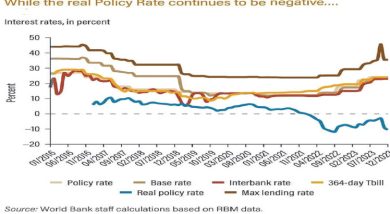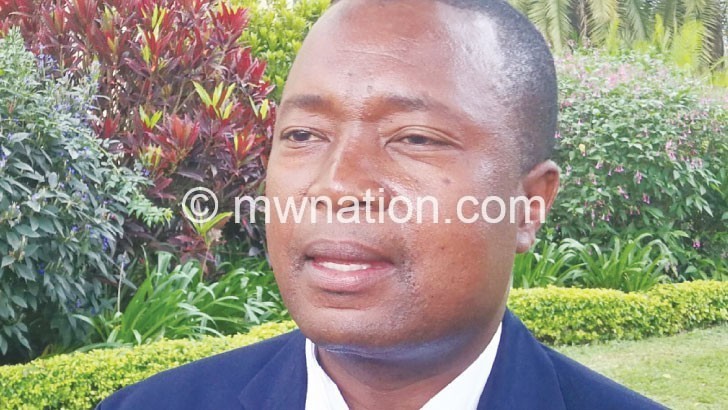Mining sector: Opportunities, challenges, hopes
 Malawi could be Africa’s largest source of rare earths, according to the Ministry of Mining.
Malawi could be Africa’s largest source of rare earths, according to the Ministry of Mining.
This could make the mining sector to contribute about 30 percent to the gross domestic product (GDP) by 2017.
To date, surveys indicate that Malawi has over 30 million tonnes of rare earths with a lifespan of over 30 years, a quantity that could run for the next generation.
Malawi, according to information from the Department of Mines, has rare earths such as dysprosium, uropium, terbium, niobium, palladium, zirconium, manganese, niobium and salium.
These elements, among others, are used in electronic gadgets such TV screens, hybrid electronic vehicles, cellphones and refrigerators. Their demand worldwide is also growing.
Government has to date issued 65 mining licences, 43 of which are foreign with the rest shared by local companies.
Among others, the Malawi Government has given exploration licences to Lancaster Exploration Limited which is 100 percent owned by Mkango Resources Limited to explore for rare earths at Songwe Hills in Phalombe and Salambidwe in Mwanza.
Others are Globe Metals and Mining exploring for niobium at Kanyika in Mzimba, Lynas Corporation at Kangankude in Balaka and Canadian-based Gold Canyon Resources Inc. which is exploring for rare earths at Chambe Basin in Mulanje Mountain and Paladin Africa Limited (PAL) which is mining uranium at Kayerekera in Karonga.
Minister of Finance Dr. Ken Lipenga earlier acknowledged that of late, Malawi has made quite a number of discoveries in terms of mineral deposits and believed that there is still a lot yet to be discovered.
To buttress the importance of the sector to the growth and development of the economy, the Economic Recovery Plan (ERP) launched last year acknowledges the importance of the mining sector by identifying it as one of the five key sectors that could help in resuscitating the economy.
The ERP notes that Malawi has abundant mineral resources that can be exploited, which include bauxite, heavy mineral sands, monazite, coal, uranium, precious and semi-precious stones, limestone, niobium, dimension stones and rock aggregates.
Challenges
But Lipenga acknowledged that government is aware of challenges that continue to dog the country’s mining sector such as lack of geo-maps, specialised laboratory equipments for mineral exploration, shortage of geologists, among others.
In addition to the problems specific to the mining sector, the country continues to face a number of challenges in the energy sector which include inadequate capacity to generate electricity to support the mining industry. Consequently, economic activity in areas such as mining and manufacturing are negatively affected.
The energy problem in the country has thus seen some mining companies such as Paladin resorting to diesel-powered generators which is expensive.
Earlier in the year, PAL, owners of Kayerekera mine in Karonga said they expect to save about $20 million (K7 billion) a year on fuel which is about 10 percent of the mine’s costs if connected to Electricity Supply Corporation of Malawi (Escom) power grid in September this year.
The mine’s general manager for international affairs Greg Walker said the mine uses 1.5 million litres of diesel a month, an equivalent of K783 million.
Apart from energy problems, transport is also another problem the mining industry is experiencing which is certainly also affecting the mining sector.
Japanese Ambassador Fugio Samukawa noted that the increasing number of people interested to invest in Malawi mining sector is a clear indication that it has potential, but emphasised that deliberate efforts have to be made to make the energy sector vibrant.
Samukawa said he is finding it difficult to sell Malawi to Japanese investors because of its high transportation costs asking the Malawi Government to improve its infrastructure, solve the intermittent power supply and invest in education of its people.
Way forward
To benefit fully from the sector, government has to support investments in energy generation and supply in order to generate and distribute sufficient amount of energy to meet national socio-economic demands.
Government should continue financing works at Kapichira II rehabilitation project which is set to add about 64 megawatts to the national grid by December this year.
Escom currently produces about 285 megawatts of power against a suppressed demand of over 350 megawatts.
The Government must also encourage the much-talked about regional interconnectivity, explore establishment of coal-generated electricity and promote Public Private Partnerships (PPP) where necessary in energy generation and distribution.
With the economy slowing down and tobacco earnings declining, Malawi certainly needs new drivers of the economy and one such driver is mining.
The Chinese government is planning to invest in thermal energy generation worth a whopping $500 million (K171 billion) which if completed would produce 1 000 megawatts of electricity for the country.
Experts have also noted that the rise in electricity pricing has seen more private investors being attracted into electricity generation.
The new pricing, according to experts, will see a number of projects that are lined up for implementation, for instance, the multipurpose dam on Songwe, North and South Rukuru and Shire River which has not been exhausted for more power plants.
Looking at the opportunities and the challenges in the sector, the mining sector, if properly managed, would become Malawi’s lifeline taking over from tobacco which wires in about 60 percent of the country’s total foreign earnings.
The tobacco sector is facing challenges with revenue for 2012 declining by 40 percent to $177 million (K54 billion).
This would also mean that the mining sector will earn the country the much-needed foreign exchange currently hovering below a month’s import cover.
In addition, a vibrant mining sector would create employment and wealth to one of the world’s poorest countries with poverty rate pegged at 50.7 percent.





